PostTime:1/15/2018
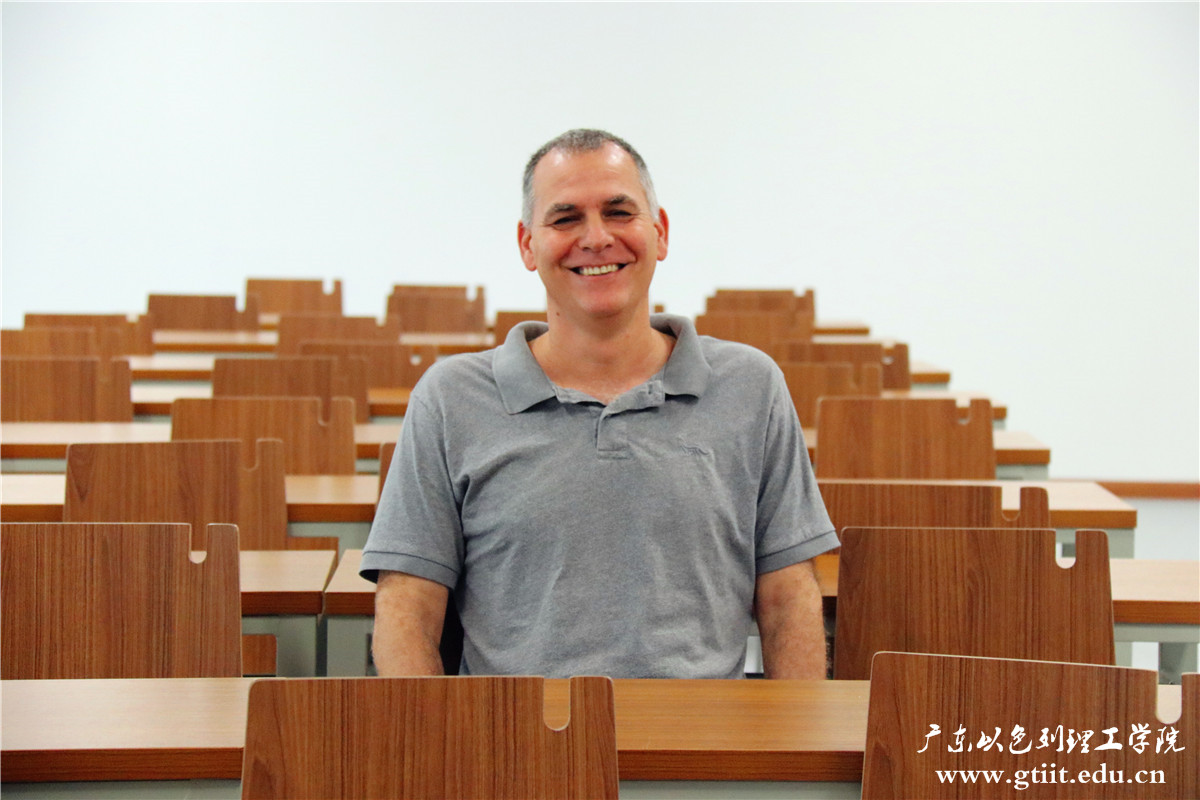
Prof. Ory Lahav is a faculty member at the Civil and Environmental Engineering at Technion and the head of the Environmental Engineering subdivision at GTIIT. Prof. Lahav specializes in Aquatic Chemistry and Water Treatment process development and applications. Prof. Lahav did all his three degrees at the Technion (1st degree in Agricultural Eng., MSc in Environmental (Civil) Eng. and PhD in Environmental Eng.) and returned to the Technion as a faculty member in 2003 after a two-year post doc term at the University of Cape Town. Prof. Lahav served up until recently as the head of the Grand Water Research Institute at the Technion. He has published around 100 papers in leading peer reviewed journals and won several prizes, including the 2015 France-Israel Foundation Award for Academic Excellence in the field of Water.
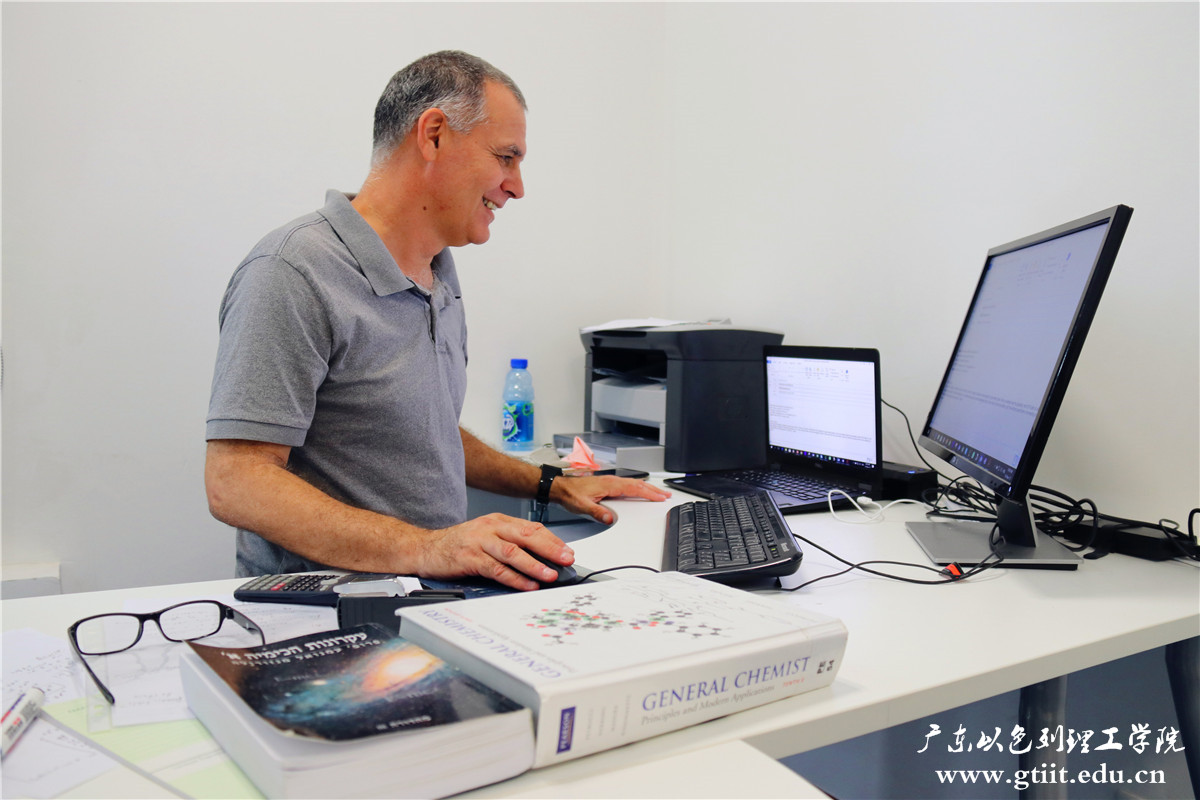
Could you explain to us about your research?
I am an environmental engineer, mainly focusing on water treatment. One example is seawater and brackish desalination, but I also work on other drinking water problems and also on abating wastewater related contamination. I am an experimentalist, which means I typically work in a lab and sometimes in the field. What my research group does is mostly to develop new types of processes. For example, with regard to desalination, we aim at decreasing the cost or the energy input into the water to obtain drinkable water from seawater. We also look at recovering minerals from seawater as a byproduct of seawater desalination.
What motivates you to study and work in chemical engineering?
I think chemical engineering is very important. In Israel, as well as some northern parts of China, water is scarce. So, by desalination, for example, one can use seawater instead. This is very important in my country and will become important also in many other places in the future. That is the reason why I decided to study and make a career in environmental/chemical engineering. I did my first degree in water engineering at the Technion. This degree is more related to water supply and involves mostly physics-related calculations rather than biological and chemical considerations. At some stage during my second degree, I decided to shift towards water treatment. I continued studying this field in my doctoral degree and finally have a nice career in water treatment.
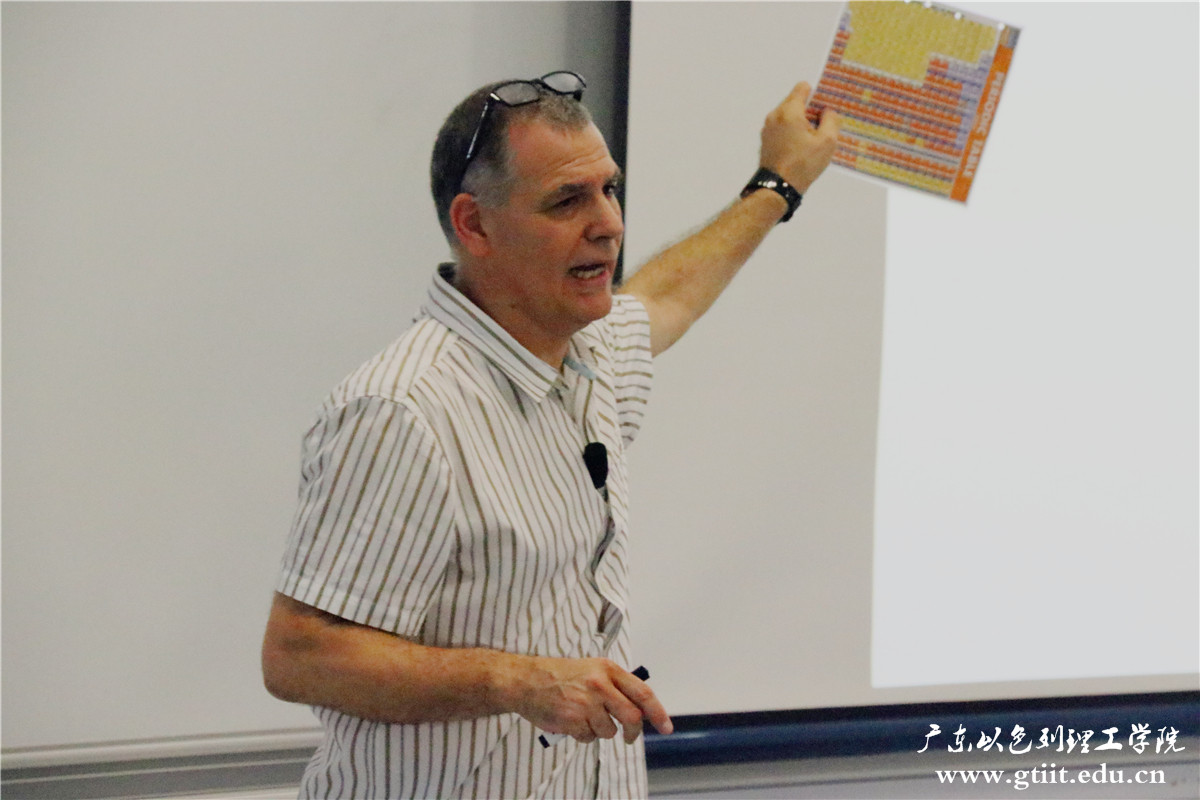
What are your plans in GTIIT?
I intend to teach in GTIIT for one year. I am here primarily to teach. In the first semester, I teach the chemistry classes, and in the second semester I will be more active in the preparation of the student labs and recruitment of new faculty. I also started a cooperation project with the STU Medical School and the College of Engineering of STU. The chemistry course I teach now is not easy, because it lays foundations for higher level chemistry which the students will require later in their studies. The course textbook is about 1400 pages and they need to cover most of the material it contains. Later, there will be more advanced courses. So far the course has been going well. The results of the mid-term exam are encouraging, generally speaking.
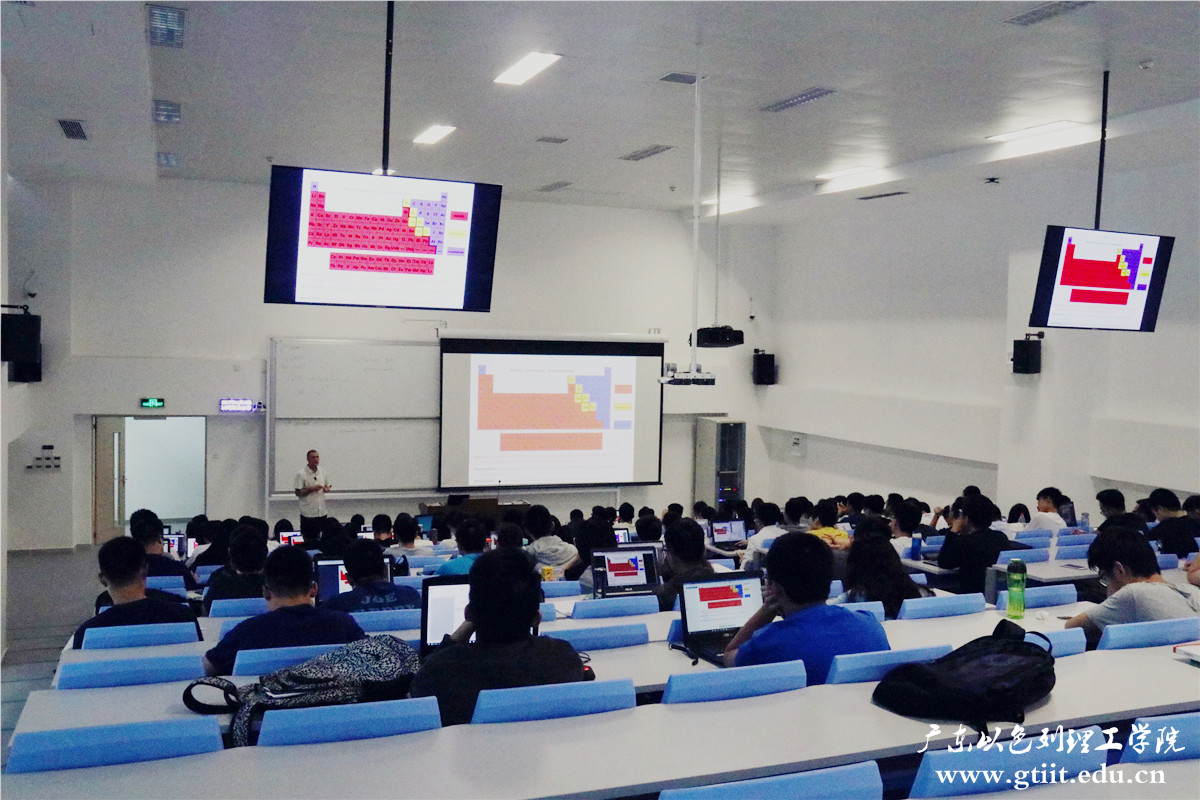
What do you think of GTIIT students?
So far, I think their level is good, If I compare them with Israeli students at the Technion, it is roughly the same level. Since the Chinese students just finished high school six months ago, they still remember most of what they learnt in high school, while for Israeli students, they go to the army before going to university, thus they forget many things they learnt before and one needs to start from scratch. I can tell some of the students are very good from the questions they ask, while some students are quiet and I don't really know what their level is.
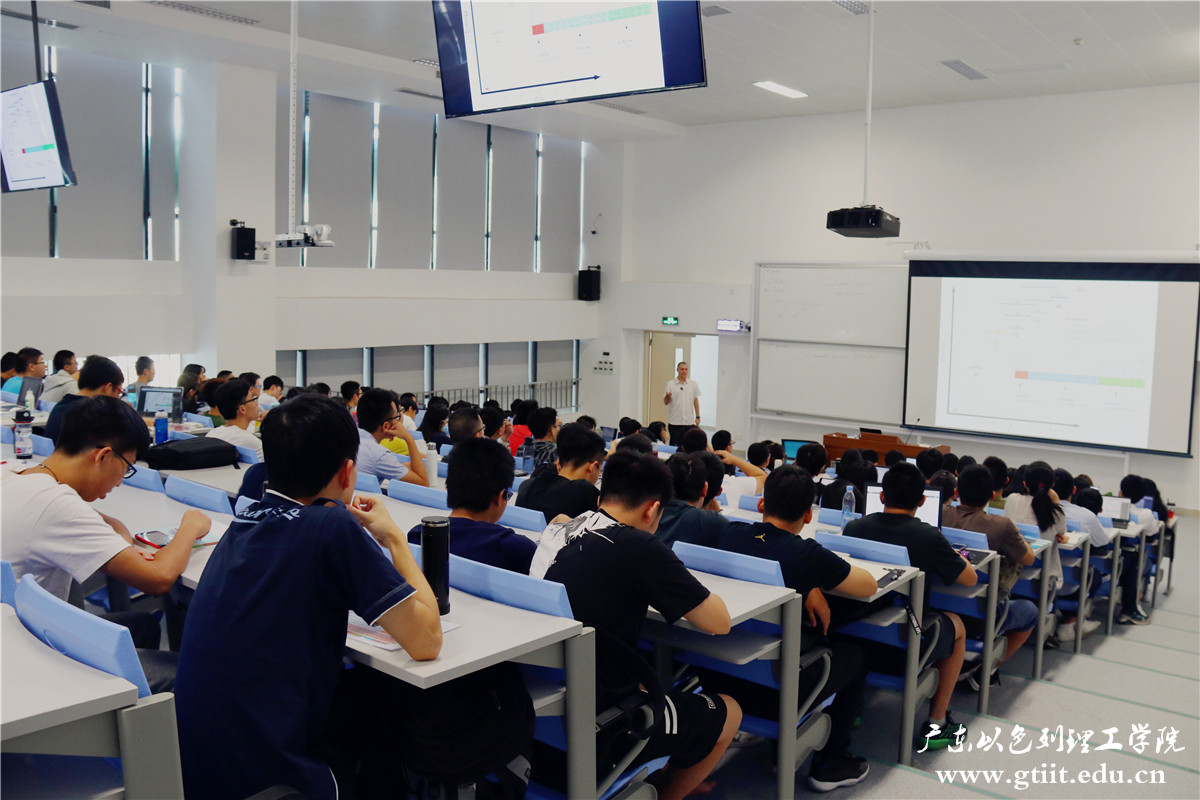
What are your impression upon GTIIT?
I think the university is going in the right direction. The infrastructure looks mostly good although, obviously, there a lot to be done yet. I checked all the classrooms before the fall semester and think they are appropriate for a high level university. I think GTIIT is very important, both for the Technion and for Guangdong province. China is the future.
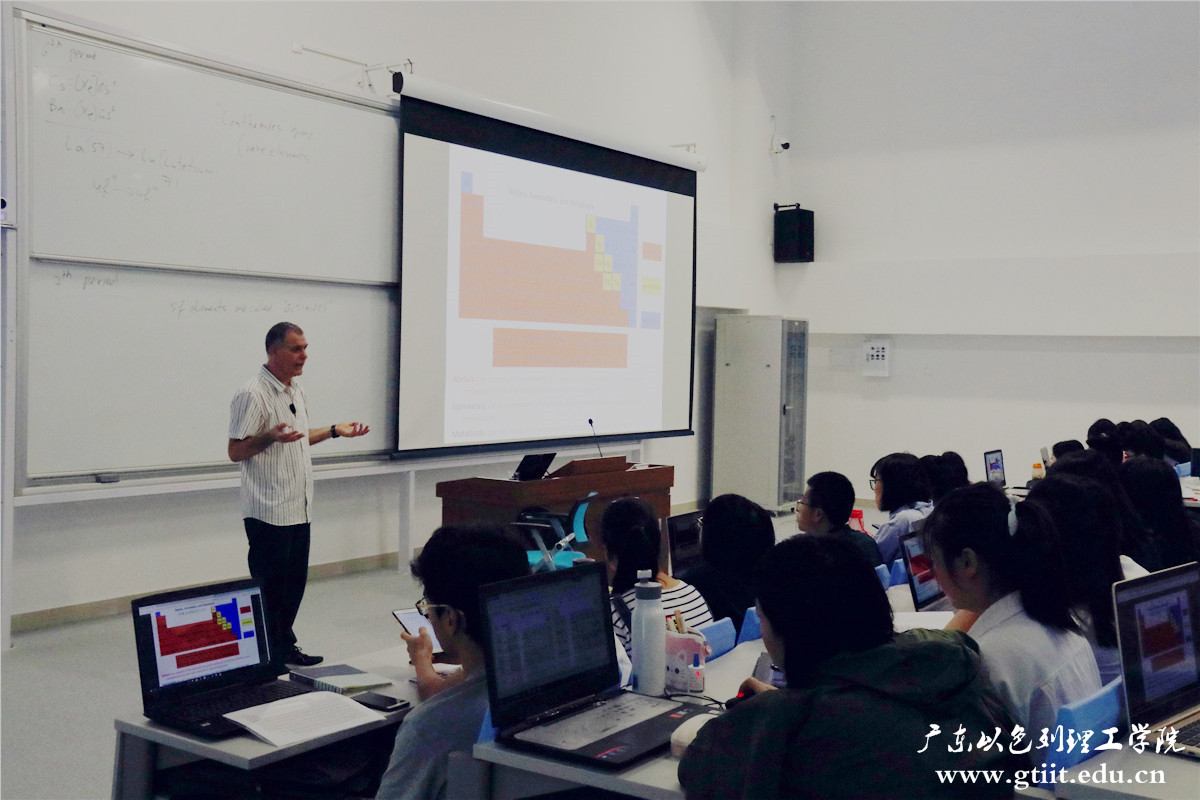
What are your impressions upon Shantou?
Shantou is clearly developing very quickly. It looks much better than it was two years ago when I first came here. I like the city. It seems to be going in a very good direction.
Text/Photos: GTIIT News & Public Affairs
© GUANGDONG TECHNION-ISRAEL INSTITUTE OF TECHNOLOGY | 粤ICP备17036470号
